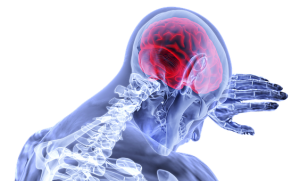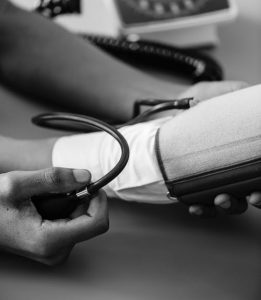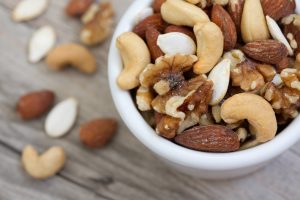 As you walk along the street during any summer carnival, it’s no doubt you’ll take in the sweet smell of cotton candy and the fragrance of fried foods like funnel cakes and fries. These fried foods can hold so many memories for many of us spending time with family and friends. Not to mention that such treats can taste delicious. However, recent studies show that the more you eat fried foods, the higher your heart disease and stroke risk.
As you walk along the street during any summer carnival, it’s no doubt you’ll take in the sweet smell of cotton candy and the fragrance of fried foods like funnel cakes and fries. These fried foods can hold so many memories for many of us spending time with family and friends. Not to mention that such treats can taste delicious. However, recent studies show that the more you eat fried foods, the higher your heart disease and stroke risk.
Heart disease and stroke facts
Besides being one of the leading causes of death in the United States, diseases of the heart come in many forms. However, it’s cardiovascular disease or conditions that involve narrowed or blocked blood vessels that are most dangerous. Such conditions include heart attack, angina (chest pain), or stroke.
Stroke is also in the top five leading causes of death in the United States and is also related to a vessel condition. It occurs when blood flow in the artery that supplies blood to the brain is blocked. Less commonly, a stroke can occur when this artery leaks or ruptures.
Fried foods and heart disease
Fried foods can taste good and can be purchased at a lower cost than healthier convenience food options. However, the long-term cost of eating such foods can be high. This is because eating such foods on a regular basis can place your heart health at risk.
Foods that are fried contain high amounts of saturated and sometimes trans fats. Research shows that when such fats in the diet are replaced with unsaturated fats, heart disease risk is reduced.
In fact, a recent study looked at the effect of fried food intake on heart disease and stroke risk. Study results show that those people who ate fried foods one to three times a week had a 7% higher risk of heart attack and stroke compared to those who ate fried foods less than once a week. Also, those people who ate fried foods daily had a 14% higher risk of such conditions.
Other ways you can lower heart disease and stroke risk
Besides reducing fried food intake, there are other things you can do to lower your heart disease and stroke risk. Use the following tips to help your heart be at its healthiest.
- Eat more fruits and vegetables: Consuming a colorful array of fruits and vegetables can help provide antioxidants to the body. Each color of the rainbow of produce contains different antioxidants that can provide varying health benefits to the body. Overall, having plenty of antioxidants in the diet can reduce inflammation in the body and lower risk of chronic diseases like heart disease.
- Sleep enough each night: Research shows that poor sleeping patterns can increase risk of heart disease and stroke. The National Sleep Foundation recommends that most adults sleep seven to nine hours each night. If you find you’re having trouble sleeping, it may be helpful to visit your doctor for treatment. They could recommend a sleep study to help identify any health issues that could be disturbing your sleep.
- Manage stress: Too much stress can have an impact on your heart health. Therefore, be sure to manage your stress with some relaxation breathing, meditation, yoga, or talking to a counselor each week.
- Visit your doctor regularly: It’s important to visit your doctor at least once a year to check your numbers. Your numbers include cholesterol, triglycerides, blood glucose levels, blood pressure, and body weight. These numbers can help identify any heart health risk factors you may have. The earlier you find such risk factors, the earlier you can receive treatment and prevent your risk of stroke.
- Take supplements when necessary: If you are lacking certain vitamins or minerals in your diet, you may need a supplement such as a multivitamin or fish oil. Supplements could help your body receive the antioxidants you need to fight oxidative stress and lower chronic disease risk factors. One such supplement is Circova by Vita Sciences. Circova contains ingredients like L-arginine, niacin, and hawthorne to help promote improved blood flow and blood pressure.
-written by Staci Gulbin, MS, MEd, RD
References:
Centers for Disease Control and Prevention (May 3, 2018) “About Stroke.”
Gordon, S. (July 11, 2019) “More evidence fried food ups heart disease, stroke risk.”
Houston, M. (February 2018) “The relationship of saturated fats and coronary heart disease: fa(c)t or fiction? A commentary.” Ther Adv Cardiovasc Dis., 12(2):33-37.
Koo, D. L., Nam, H., Thomas, R. J., & Yun, C. H. (2018). Sleep Disturbances as a Risk Factor for Stroke. Journal of stroke, 20(1), 12-32.
Mayo Clinic (March 22, 2018) “Heart Disease.”
Medline Plus (last reviewed December 26, 2017) “Antioxidants.”
National Sleep Foundation (accessed October 30, 2018) “National Sleep Foundation Recommends New Sleep Times.”
 Have you ever been told to eat your veggies? Many of us have been told as children that vegetables and other plant-based foods would help us grow strong. And as adults, you may have been told that eating more vegetables will help you manage your weight. But recent studies show that plant-based foods may also be good for your gut health, especially for those with Crohn’s disease.
Have you ever been told to eat your veggies? Many of us have been told as children that vegetables and other plant-based foods would help us grow strong. And as adults, you may have been told that eating more vegetables will help you manage your weight. But recent studies show that plant-based foods may also be good for your gut health, especially for those with Crohn’s disease. Recent statistics show that stroke is the number five cause of death and disability in the United States. This is why it’s so important to look into what factors may increase risk of this condition and work to reduce them. For example, a recent study shows that working long hours may increase one’s risk for stroke. Although this may not always be a factor that you can prevent, let’s learn more about this condition and ways you can lower your risk.
Recent statistics show that stroke is the number five cause of death and disability in the United States. This is why it’s so important to look into what factors may increase risk of this condition and work to reduce them. For example, a recent study shows that working long hours may increase one’s risk for stroke. Although this may not always be a factor that you can prevent, let’s learn more about this condition and ways you can lower your risk. The National, Heart, Lung, and Blood Institute has named May High Blood Pressure Education Month. And since heart disease is one of the leading killers of adults in the United States, it’s important that everyone learn how to care for their heart. Read below for information on blood pressure, how to reduce your risk for hypertension and heart disease, and how some supplements may help your heart.
The National, Heart, Lung, and Blood Institute has named May High Blood Pressure Education Month. And since heart disease is one of the leading killers of adults in the United States, it’s important that everyone learn how to care for their heart. Read below for information on blood pressure, how to reduce your risk for hypertension and heart disease, and how some supplements may help your heart. Unless you have kidney disease, you may not realize how important these small organs are to overall health. Although they are only about the size of a fist each, these bean-shaped organs do a lot for your body. Their main function is to filter the blood. However, they also work to remove wastes from the body as well as remove extra water to produce urine. The kidneys also make hormones to help with bone health and blood pressure health.
Unless you have kidney disease, you may not realize how important these small organs are to overall health. Although they are only about the size of a fist each, these bean-shaped organs do a lot for your body. Their main function is to filter the blood. However, they also work to remove wastes from the body as well as remove extra water to produce urine. The kidneys also make hormones to help with bone health and blood pressure health. You may have heard that breakfast is the most important meal of the day. However, is this really true or just an old wives’ tale? Recent research does show that a high-quality breakfast can improve health-related quality of life. However along with this finding, a new study shows that eating this meal could lower your heart disease risk. Let’s learn a little more about the importance of your morning meal for overall health and how you can make it healthier.
You may have heard that breakfast is the most important meal of the day. However, is this really true or just an old wives’ tale? Recent research does show that a high-quality breakfast can improve health-related quality of life. However along with this finding, a new study shows that eating this meal could lower your heart disease risk. Let’s learn a little more about the importance of your morning meal for overall health and how you can make it healthier. When you first wake up in the money, it may be easy to grab something quick like a donut, pastry, or a quick bowl of cereal. However, what you choose to eat for breakfast could very well set the tone for what you eat the rest of the day. In fact, research shows that if you reduce carbohydrate intake at breakfast, then you could help control your blood glucose levels. Let’s learn a little more about this study, about blood glucose levels, as well as ways you can reduce carbs at your next morning meal.
When you first wake up in the money, it may be easy to grab something quick like a donut, pastry, or a quick bowl of cereal. However, what you choose to eat for breakfast could very well set the tone for what you eat the rest of the day. In fact, research shows that if you reduce carbohydrate intake at breakfast, then you could help control your blood glucose levels. Let’s learn a little more about this study, about blood glucose levels, as well as ways you can reduce carbs at your next morning meal.
 Anyone who has been on a healthy lifestyle plan knows that you should try not to drink your calories. This is because you want to cut calories wherever you can to lose weight. However, cutting out those sugary drinks are not only helpful in weight loss, but also in cutting your disease risk. In fact, a recent study found that those who drank less sugary drinks had a lower risk of chronic diseases and early death as compared to those who drank sugary drinks often.
Anyone who has been on a healthy lifestyle plan knows that you should try not to drink your calories. This is because you want to cut calories wherever you can to lose weight. However, cutting out those sugary drinks are not only helpful in weight loss, but also in cutting your disease risk. In fact, a recent study found that those who drank less sugary drinks had a lower risk of chronic diseases and early death as compared to those who drank sugary drinks often. With new year’s resolutions perhaps on their second wind, and summer approaching, you may be considering a new diet. Maybe this is a reboot of the diet you started at the beginning of January. Or maybe you saw a new fad diet online that promises quick results just in time for bathing suit season. But before you fall into this trap, you should know that current research shows that yo-yo dieting could hurt your heart.
With new year’s resolutions perhaps on their second wind, and summer approaching, you may be considering a new diet. Maybe this is a reboot of the diet you started at the beginning of January. Or maybe you saw a new fad diet online that promises quick results just in time for bathing suit season. But before you fall into this trap, you should know that current research shows that yo-yo dieting could hurt your heart.